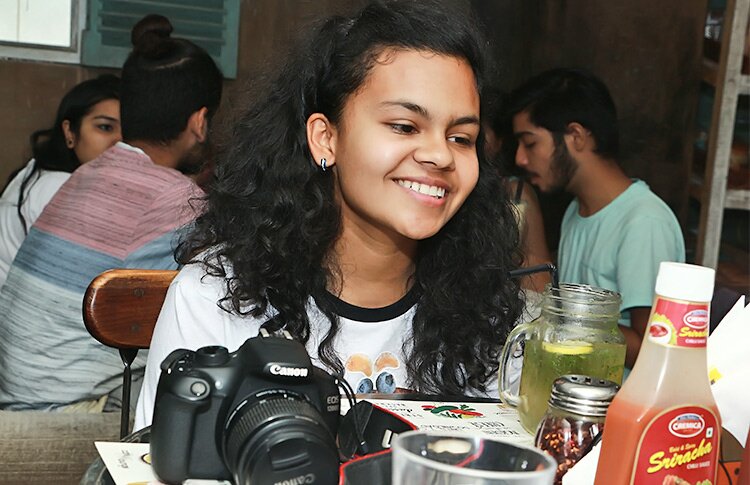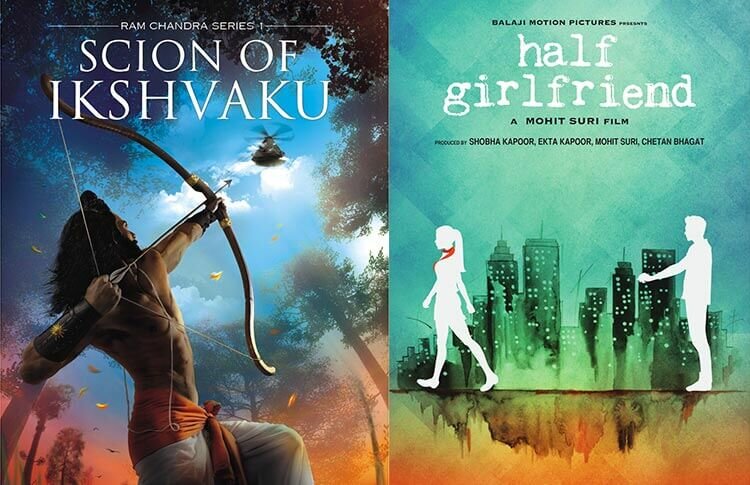49 Incredible Books From 49 Different Countries
- JWB Post
- December 10, 2015
Ann Morgan recently talked about her habit of reading. She revealed setting an ambitious goal: to read one book from every country in the world over the course of a year. Now she’s urging other Anglophiles to read translated works so that publishers will work harder to bring foreign literary gems back to their shores.
Have a look at these 49 places that Ann has included in her reading list:
Algeria
The Sexual Life of an Islamist in Paris
by Leïla Marouane
“Basile Tocquard is a handsome, wealthy, Parisian bank manager. Born in Algeria, his life was once devoted to Sundays with his mother, family reunions, pious sobriety, and devout Islamism. But now the time has come for him to find a suitable apartment in the trendiest neighborhood in Paris, for aperitifs at the Deux Magots and the Café de Flore, for shopping sprees at the most exclusive boutiques in Paris. And for a sex life free of prohibitions! Thus his adventures begin. Unfortunately for him, but to the delight of the reader, his story is filtered through a rather unsympathetic female narrator who refuses to show our hero the attention he feels he deserves.”
Colombia
Delirium
by Laura Restrepo
“Internationally acclaimed for the virtuosity and power of her fiction, Laura Restrepo has created in Delirium a passionate, lyrical, devastating tale of eros and insanity. Aguilar, an unemployed literature professor who has resorted to selling dog food for a living, returns home from a short trip to discover that his wife, Agustina, has gone mad. He doesn’t know what has happened during his absence, and in his search for answers, he gradually unearths profound and shadowy secrets about her past.”
Australia
Cloudstreet
by Tim Winton
“An epic novel that regularly tops the list of best-loved novels in Australia. After two separate catastrophes, two very different families leave the country for the bright lights of Perth. The Lambs are industrious, united, and―until God seems to turn His back on their boy Fish―religious. The Pickleses are gamblers, boozers, fractious, and unlikely landlords. Change, hardship, and the war force them to swallow their dignity and share a great, breathing, shuddering house called Cloudstreet.”
Saudi Arabia
Girls of Riyadh
by Rajaa Alsanea
“When Rajaa Alsanea boldly chose to open up the hidden world of Saudi women—their private lives and their conflicts with the traditions of their culture—she caused a sensation across the Arab world. Now in English, Alsanea’s tale of the personal struggles of four young upper-class women offers Westerners an unprecedented glimpse into a society often veiled from view. Living in restrictive Riyadh but traveling all over the globe, these modern Saudi women literally and figuratively shed traditional garb as they search for love, fulfillment, and their place somewhere in between Western society and their Islamic home.”
Japan
Manazuru
by Hiromi Kawakami
“Twelve years have passed since Kei’s husband, Rei, disappeared and she was left alone with her three-year-old daughter. Her new relationship with a married man—the antithesis of Rei—has brought her life to a numbing stasis, and her relationships with her mother and daughter have spilled into routine, day after day. Kei begins making repeated trips to the seaside town of Manazuru, a place that jogs her memory to a moment in time she can never quite locate. Her time there by the water encompasses years of unsteady footing and a developing urgency to find something. Through a poetic style embracing the surreal and grotesque, a quiet tenderness emerges from these dark moments. Manazuru is a meditation on memory—a profound, precisely delineated exploration of the relationships between lovers and family members. Both startlingly restless and immaculately compact, Manazuru paints the portrait of a woman on the brink of her own memories and future.”
Dominican Republic
The Brief Wondrous Life of Oscar Wao
by Junot Diaz
“Oscar is a sweet but disastrously overweight ghetto nerd who—from the New Jersey home he shares with his old world mother and rebellious sister—dreams of becoming the Dominican J.R.R. Tolkien and, most of all, finding love. But Oscar may never get what he wants. Blame the fukú—a curse that has haunted Oscar’s family for generations, following them on their epic journey from Santo Domingo to the USA. Encapsulating Dominican-American history, The Brief Wondrous Life of Oscar Wao opens our eyes to an astonishing vision of the contemporary American experience and explores the endless human capacity to persevere—and risk it all—in the name of love.”
Russia
One Day in the Life of Ivan Denisovich
by Alexander Solzhenitsyn
“The simply told story of a typical, grueling day of the titular character’s life in a labor camp in Siberia, is a modern classic of Russian literature and quickly cemented Solzhenitsyn’s international reputation.”
Ethiopia
Beneath the Lion’s Gaze
by Maaza Mengiste
“The brutal 1970s civil war in Ethiopia is the dramatic setting in this first novel, told from searing personal viewpoints that humanize the politics from many sides and without slick messages. The author, born in Addis Ababa and now living in New York, tells the story in unforgettable detail: between Emperor Haile Selassi in his lush palace set against the famine outside, captured in the image of a child gnawing on a stone.”
Uruguay
The Decapitated Chicken
by Horacio Quiroga
“Tales of horror, madness, and death, tales of fantasy and morality: these are the works of South American master storyteller Horacio Quiroga. Author of some 200 pieces of fiction that have been compared to the works of Poe, Kipling, and Jack London, Quiroga experienced a life that surpassed in morbidity and horror many of the inventions of his fevered mind… His stories are infused with death, too, but they span a wide range of short fiction genres: jungle tale, Gothic horror story, morality tale, psychological study.”
Liechtenstein
Seven Years in Tibet
by Heinrich Harrer
“In this vivid memoir that has sold millions of copies worldwide, Liechtenstein’s Heinrich Harrer recounts his adventures as one of the first Europeans ever to enter Tibet and encounter the Dalai Lama.”
Turkey
The Forty Rules of Love
by Elif Shafak
“[T]he most widely read female writer in Turkey… Shafak effortlessly blends East and West, past and present, to create a dramatic, compelling, and exuberant tale about how love works in the world. Shafak unfolds two parallel narratives-one set in the thirteenth century, when Rumi encountered his spiritual mentor, the wandering dervish known as Shams of Tabriz, and one contemporary, as an unhappy American housewife, inspired by Rumi’s message of love, finds the courage to transform her life.”
Pakistan
The Wandering Falcon
by Jamil Ahmad
“A remarkable, award-winning book about the tribes of Pakistan and Afghanistan. In this extraordinary tale, Tor Baz, the young boy descended from both chiefs and outlaws who becomes the Wandering Falcon, moves between the tribes of Pakistan and Afghanistan and their uncertain worlds full of brutality, humanity, deep love, honor, poverty, and grace. The wild area he travels — the Federally Administered Tribal Area — has become a political quagmire known for terrorism and inaccessibility. Yet in these pages, eighty-year-old debut author Jamil Ahmad lyrically and insightfully reveals the people who populate those lands, their tribes and traditions, and their older, timeless ways in the face of sometimes ruthless modernity. This story is an essential glimpse into a hidden world, one that has enormous geopolitical significance today and still remains largely a mystery to us.”
Bhutan
The Circle of Karma
by Kunzang Choden
“The first novel by a woman to come out of the small kingdom of Bhutan. Written in English, the novel tells the story of Tsomo, a young Bhutanese woman who embarks on the difficult and lonely journey of life. Tsomo’s travels, which begin after her mother’s death, take her away from her family, and leads her across Bhutan and into India. All the while, Tsomo seeks to find herself and a life partner, and grows as a person and a woman. The text of this unusual work is enriched by detailed descriptions of ritual life in Bhutan.”
Senegal
So Long a Letter
by Mariama Bâ
“Written by award-winning African novelist Mariama Ba and translated from the original French, So Long a Letter has been recognized as one of Africa’s 100 Best Books of the 20th Century. The brief narrative, written as an extended letter, is a sequence of reminiscences—some wistful, some bitter—recounted by recently widowed Senegalese schoolteacher Ramatoulaye Fall. Addressed to a lifelong friend, Aissatou, it is a record of Ramatoulaye’s emotional struggle for survival after her husband betrayed their marriage by taking a second wife. This semi-autobiographical account is a perceptive testimony to the plight of educated and articulate Muslim women. Angered by the traditions that allow polygyny, they inhabit a social milieu dominated by attitudes and values that deny them status equal to men.”
Mexico
Like Water for Chocolate
by Laura Esquivel
“Earthy, magical, and utterly charming, this tale of family life in turn-of-the-century Mexico became a best-selling phenomenon with its winning blend of poignant romance and bittersweet wit. The classic love story takes place on the De la Garza ranch, as the tyrannical owner, Mama Elena, chops onions at the kitchen table in her final days of pregnancy. While still in her mother’s womb, her daughter to be weeps so violently she causes an early labor, and little Tita slips out amid the spices and fixings for noodle soup. This early encounter with food soon becomes a way of life, and Tita grows up to be a master chef. She shares special points of her favorite preparations with listeners throughout the story.”
Iceland
Stone Tree
by Gyrõir Elíasson
“Along the lonely western shores of Iceland, among its vast mountain ranges and its barren lava fields, this sublime collection of short stories blends the desires and efforts of its numerous protagonists, nearly all intent on taking leave of their normal lives in order to pursue their dreams more seriously.”
Guatemala
The President
by Miguel Angel Asturias
“Winner! Nobel Prize for Literature. Guatemalan diplomat and writer Miguel Angel Asturias began this award-winning work while still a law student. It is a story of ruthless dictator and his schemes to dispose of a political adversary in an unnamed Latin American country usually identified as Guatemala. The book has been acclaimed for portraying both a totalitarian government and its damaging psychological effects. Drawing from his experiences as a journalist writing under repressive conditions, Asturias employs such literary devices as satire to convey the government’s transgressions and surrealistic dream sequences to demonstrate the police state’s impact on the individual psyche.”
Slovenia
The Golden Shower: Or What Men Want
by Luka Novak
“A light-hearted but deadly serious romp through postmodern culture, mores and lifestyles. In turns, it is shallow, profound, didactic, moving and instructive. In its original Slovenian, it was a bestseller, capturing both the ailments and strengths of a world that seems to have turned upside down our normal desires and expectations.”
Finland
The Year of the Hare
by Arto Paasilinna
“‘Which of us has not had that wonderfully seditious idea: to play hooky for a while from life as we know it?’ With these words from his foreword, Pico Iyer puts his finger on the exhilaratingly anarchic appeal of The Year of the Hare. Suddenly realizing what’s important in life (with the help of a bunny), a man quits his job and heads to the countryside in this internationally bestselling comic novel.”
Tunisia
Talismano
by Abdelwahab Meddeb
“A novelistic exploration of writing seen as a hallucinatory journey through half-remembered, half-imagined cities–in particular, the city of Tunis, both as it is now, and as it once was. Walking and writing, journey and journal, mirror one another to produce a calligraphic, magical work: a palimpsest of various languages and cultures, highlighting Abdelwahab Meddeb’s beguiling mastery of both the Western and Islamic traditions.”
Angola
The Whistler
by Ondjaki
“From Angola, a country riddled with civil war and its aftereffects for the last 30 years, comes a surprising story of hope, passion, and magical realism from a groundbreaking young African novelist. A young man arrives at the church of a small African village and starts whistling so beautifully that the priest is left in tears. As his weeklong stay continues, the whistler finds himself affected by the colorful inhabitants of the village as they all become bewitched and surrender to the moods of his melodies.”
Qatar
The Corsair
by Abdulaziz Al-Mahmoud
“It’s the early part of the nineteenth century and the Arabian Peninsula and the waters surrounding it are ablaze. Piracy in the Gulf threatens global maritime trade routes while the Wahabbi strain of Islam is conquering followers town by town across the region. Britain, eager to reinforce its presence in the Middle East and protect the East India Company’s ships, has a plan: send a man-of-war from England to quash the pirates while persuading Egypt to join an international alliance with Oman and Persia to fight the Wahabbis. At the center of it all lies a priceless Indian sword, a gift from the British monarch to the Egyptian Pasha. But Erhama bin Jaber, a historical figure and one of the most notorious pirates in the Gulf, has his own agenda and his own vendettas. When the Arabian corsair and his gang attack a ship carrying the sword, Britain’s complex strategy goes terribly awry.”
Afghanistan
The Patience Stone
by Atiq Rahimi
“For far too long, Afghan women have been faceless and voiceless. Until now. With The Patience Stone, Atiq Rahimi gives face and voice to one unforgettable woman–and, one could argue, offers her as a proxy for the grievances of millions… it is a rich read, part allegory, part a tale of retribution, part an exploration of honor, love, sex, marriage, war. It is without doubt an important and courageous book.” From the introduction by Khaled Hosseini, author of The Kite Runner and A Thousand Splendid Suns
The Bahamas
Thine Is The Kingdom
by Garth Buckner
“When young Gavin Blake returns to his island home to claim his right to citizenship he is stonewalled. He discovers that the only way forward is through bribery. Confronted with the stark irony of having to do something illegal to become legal he finds he must make a choice. While he weighs his options, Gavin takes a job on the yacht of a wealthy young local called Jacob Thesinger who lives in an old colonial seaside home and who sees himself as the defender of the island’s culture and history while crime and corruption threaten him… This is a novel that explores the nature of class and identity in the post-colonial world through a narrative rich in imagery and wrought in a confident, graceful prose.”
Mongolia
The Blue Sky
by Galsan Tschinag
“In the Altai Mountains of northern Mongolia, the nomadic Tuvan people’s ancient way of life is colliding with the pervasive influence of modernity. For the young shepherd boy Dshurukuwaa, the confrontation comes in stages. First his older siblings leave the family yurt to attend a distant boarding school, followed by the death of his beloved grandmother and with it, the connection to the tribe’s traditions and deep relationship to the land. But the greatest tragedy strikes when his dog — ‘all that was left to me’ — dies after ingesting poison set out by the boy’s father to protect the herd from wolves. His despairing questions to the Heavenly Blue Sky are answered only by the silence of the wind. The first and only member of the Tuvans to use written language to tell stories, Galsan Tschinag chronicles their traditions in this fascinating, bittersweet novel.”
Armenia
Armenian Golgotha
by Grigoris Balakian
“On April 24, 1915, Grigoris Balakian was arrested along with some 250 other leaders of Constantinople’s Armenian community. It was the beginning of the Ottoman Empire’s systematic attempt to eliminate the Armenian people from Turkey—a campaign that continued through World War I and the fall of the empire. Over the next four years, Balakian would bear witness to a seemingly endless caravan of blood, surviving to recount his miraculous escape and expose the atrocities that led to over a million deaths. Armenian Golgotha is Balakian’s devastating eyewitness account—a haunting reminder of the first modern genocide and a controversial historical document that is destined to become a classic of survivor literature.”
Switzerland
Why the Child is Cooking in the Polenta
by Aglaja Veteranyi
“Aglaja Veteranyi was born in Bucharest to a family of circus artists who toured Europe relentlessly until they finally settled in Switzerland. An actress, performer, and artist as well as a writer, she only published one novel during her lifetime. She committed suicide in 2002. In the novel, a nomadic family of circus performers, refugees from Romania, travels through Europe and Africa by caravan. The mother’s death-defying act causes constant anxiety for her two daughters, who voice their fears through a grisly communal fairy tale about a child being cooked alive in polenta–but their real life is no less of a dark fable, and one that seems just as unlikely to have a happy ending… Veteranyi was acclaimed for her seemingly ‘artless’ narrative voice, in which pain and hilarity always vie for the upper hand–a voice at once lyrical and jaded, prurient and spiritual, comical and horrifying.”
Germany
All the Lights
by Clemens Meyer
“A man bets all he has on a horserace to pay for an expensive operation for his dog. A young refugee wants to box her way straight off the boat to the top of the sport. Old friends talk all night after meeting up by chance. She imagines their future together… Stories about people who have lost out in life and in love, and about their hopes for one really big win, the chance to make something of their lives. In silent apartments, desolate warehouses, prisons and down by the river, Meyer strikes the tone of our harsh times, and finds the grace notes, the bright lights shining in the dark.”
Marshall Islands
Marshall Islands: Legends and Stories
by Daniel A. Kelin II
“Daniel A. Kelin II preserves the qualities of oral storytelling in fifty stories recorded from eighteen storytellers on eight islands and atolls. This lively collection includes something for everyone: origin stories, tales of mejenkwaad and other demons, tricksters, disobedient children, wronged husbands, foolish suitors, and reunited families – all relaying the importance of traditional Marshallese values and customs. Profiles of the storytellers, a glossary, and a pronunciation guide enrich the collection.”
Israel
Blooms of Darkness
by Aharon Appelfeld
“In this powerful novel from award-winning Israeli writer Appelfeld, two discarded souls form an unlikely bond in the chaos of occupied Ukraine during WWII. When the Jews are being rounded up, 11-year-old Hugo’s mother hides him with her childhood friend, Mariana, a prostitute in a brothel. Locked in a closet every night, Hugo hears Mariana at work and disappears into dreams and visions about his family and friends.”
Papua New Guinea
Mata Sara (Crooked Eyes)
by Regis Tove Stella
“Mata Sara is a novel that fictionalizes the ideas of alienation and displacement through the lives of 4 indigenous students who win scholarships to study overseas. These students endeavour through various ways to adapt to new landscapes and environments. In this new place, they find themselves strangers, a minority in the midst of a sea of dimdims who act strangely, whose values, practices etc. are often not understood by the students.”
Laos
Mother’s Beloved
by Outhine Bounyavong
“Outhine Bounyavong is one of the most prominent contemporary writers in Laos. His stories are animated with Laotian virtues of simplicity, compassion, respect for age, and other village mores; they breathe with a gentleness that is fresh and distinctive. Outhine is interested in his own memories, in how to behave with compassion, and in the chain of life among men and women that reaches into the earth.”
Indonesia
Durga/Umayi
by Yusuf Bliyarta Mangunwijaya
“A scathingly satirical and hilarious novel…affords both a blithely irreverent overview of Indonesian history in the Sukarno and Suharto eras and brilliant insights into the postcolonial condition. The story begins in the 1930s, before Indonesia’s independence from Dutch rule, and follows the fortunes of a poor Javanese village woman who becomes a servant in the household of President Sukarno… Framed by the world of ritual shadow plays – the realm of witches like Durga and the goddess Umayi – Mangunwijaya’s novel gives an unblinking but remarkably compassionate account of people caught up in the great nationalist maelstrom of Indonesia’s recent history.”
New Zealand
Once Were Warriors
by Alan Duff
“Once Were Warriors is Alan Duff’s harrowing vision of his country’s indigenous people two hundred years after the English conquest. In prose that is both raw and compelling, it tells the story of Beth Heke, a Maori woman struggling to keep her family from falling apart, despite the squalor and violence of the housing projects in which they live. Conveying both the rich textures of Maori tradition and the wounds left by its absence, Once Were Warriors is a masterpiece of unblinking realism, irresistible energy, and great sorrow.”
China
Banished!
by Han Dong
“It is 1969 and China is in the throes of the Cultural Revolution. The Taos face exile with stoicism and teach their son to embrace reeducation wholeheartedly. Is this simple pragmatism, an attempt to protect the boy and ensure his future? Or do the banished cadres really cling to their belief in their leaders and the ideals of the Revolution? These questions remain tantalizingly unanswered in this prize-winning first novel.”
Bangladesh
The Good Muslim
by Tahmima Anam
“A New Yorker Best Book of the Year. In the dying days of a brutal civil war in Bangladesh, Sohail Haque stumbles upon an abandoned building. Inside he finds a young woman whose story will haunt him for a lifetime to come. Almost a decade later, Sohail’s sister, Maya, returns home after a long absence to find her beloved brother transformed. While Maya has stuck to her revolutionary ideals, Sohail has shunned his old life to become a charismatic religious leader. And when Sohail decides to send his son to a madrasa, the conflict between brother and sister comes to a devastating climax. The Good Muslim is an epic story about faith, family, the rise of religious fundamentalism, and the long shadow of war from prizewinning Bangladeshi novelist Tahmima Anam.”
Fiji
Kava in the Blood
by Peter Thomson
“Entwined through the author’s reportage of the 1987 coups is an evocative picture of life in the islands. Thus, Kava in the Blood is also an intriguing story of hurricanes, haunted houses and copious kava consumption, set within the dramatic landscapes and vibrant cultures of the Fiji Islands.”
Greece
Kassandra and the Wolf
by Margarita Karapanou
“No retelling of Kassandra and the Wolf can explain its charm, or its riddles. … [It] is one of those rare creations that come alive mysteriously, without any antecedents. The book is original, terrifying, complete. It invents its own history, eases in and out of nightmare as it mingles dream and fact. Kassandra and the Wolf is a short, muscular novel with an absolute sense of craft. … The language throughout is merciless and crisp. … [A] stunning achievement: a lovely, sinister book.” – Jerome Charyn, New York Times
Palestine
Mordechai’s Moustache and his Wife’s Cats, and Other Stories
by Mahmoud Shukair
“Mahmoud Shukair’s first major publication in English translation enthralls, surprises and even shocks as one of the world’s most original of storytellers excels in exposing the surreal moments in the ordinary and the mundane, the limits of human frustration and patience. Brimming with humor that ranges from the funny and the farcical, to satire and black comedy, with a painter’s eye for color and detail, Shukair’s stories present a unique commentary on the power of human imagination to see beyond the particular.”
Argentina
Seconds Out
by Martin Kohan
“New York, 1923: the Argentine boxer Luis Angel Firpo knocks out of the ring Jack Dempsey, heavyweight champion of the world. Dempsey is out of the ring for seventeen seconds, but is allowed by the US referee to get back in. In the second round, Dempsey knocks Firpo out. Seconds Out is a powerful reflection on memory and national identity.”
Nicaragua
Infinity in the Palm of her Hand
by Gioconda Belli
“Prepare to enter a fascinating, primitive universe that goes back to the very beginning, to the story upon which Western civilization is based. Poetry and mystery go hand in hand in this transcendent novel about mankind, as never before imagined. Join Adam and Eve as they discover the world for themselves, feel their confusion and panic when they face punishment, and observe in awe as they experience the power to give life and, eventually, the ability to take it away to survive. From internationally acclaimed poet and author Gioconda Belli comes a beguiling and soulfully rewarding novel—a parable that captures our own time and our own uncertain future.”
Cape Verde
The Last Will and Testament of Senor da Silva
by Germano Almeida
“The masterwork of Cape Verde’s greatest living writer, Germano Almeida: an ironic and original tragic-comedy from a new voice in African literature. Everyone in Cape Verde knows Señor da Silva. Successful entrepreneur, owner of the island’s first automobile, a most serious, upright, and self-made businessman, Señor da Silva is the local success story. Born an orphan, he never married, he never splurged—one good suit was good enough for him—and he never wandered from the straight and narrow. Or so everyone thought. But when Señor da Silva’s 387-page Last Will and Testament is read aloud—a marathon task on a hot afternoon which exhausts reader after reader—there’s eye-opening news, and not just for the smug nephew so certain of inheriting all Señor da Silva’s property.”
Ireland
Ulysses
by James Joyce
“Ulysses has been labeled dirty, blasphemous, and unreadable. In a famous 1933 court decision, Judge John M. Woolsey declared it an emetic book–although he found it sufficiently unobscene to allow its importation into the United States–and Virginia Woolf was moved to decry James Joyce’s “cloacal obsession.” None of these adjectives, however, do the slightest justice to the novel. To this day it remains the modernist masterpiece, in which the author takes both Celtic lyricism and vulgarity to splendid extremes. It is funny, sorrowful, and even (in a close-focus sort of way) suspenseful. And despite the exegetical industry that has sprung up in the last 75 years, Ulysses is also a compulsively readable book. Even the verbal vaudeville of the final chapters can be navigated with relative ease, as long as you’re willing to be buffeted, tickled, challenged, and (occasionally) vexed by Joyce’s sheer command of the English language.”
Uganda
Abyssinian Chronicles
by Moses Isegawa
“Abyssinian Chronicles tells a riveting story of twentieth-century Africa that is passionate in vision and breathtaking in scope. At the center of this unforgettable tale is Mugezi, a young man who manages to make it through the hellish reign of Idi Amin and experiences firsthand the most crushing aspects of Ugandan society: he withstands his distant father’s oppression and his mother’s cruelty in the name of Catholic zeal, endures the ravages of war, rape, poverty, and AIDS, and yet he is able to keep a hopeful and even occasionally amusing outlook on life. Mugezi’s hard-won observations form a cri de coeur for a people shaped by untold losses.”
Canada
Mauve Desert
by Nicole Brossard
“This is both a single novel and three separate novels in one. In the first, Mauve Desert, fifteen-year-old Mélanie drives across the Arizona desert in a white Meteor chasing fear and desire, cutting loose from her mother and her mother’s lover, Lorna, in their roadside Mauve Motel. In the second book, Maudes Laures reads Mauve Desert, becomes obsessed with it, and embarks on an extraordinary quest for its mysterious author, characters and meaning. The third book – Mauve, the horizon – is Laures’s eventual translation of Mauve Desert. Like all good translations, it is both the same and revealingly different from the original. Nicole Brossard’s writing is agile and inventive; from moment to moment gripping, exhilarating and erotic. Her language drifts and swells like sand dunes in a desert, cresting and accumulating into a landscape that shifts like wind and words; she translates the practice of translation, the pulse of desire.”
Kyrgyzstan
Jamilia
by Chingiz Aitmatov
“The Second World War is raging, and Jamilia’s husband is off fighting at the front. Accompanied by Daniyar, a sullen newcomer who was wounded on the battlefield, Jamilia spends her days hauling sacks of grain from the threshing floor to the train station in their village in the Caucasus. Spurning men’s advances and wincing at the dispassionate letters she receives from her husband, Jamilia falls helplessly in love with the mysterious Daniyar in this heartbreakingly beautiful tale. A classic from the award-winning Kyrgyz novelist Chingiz Aitmatov.”
Estonia
The Beauty of History
by Viivi Luik
“1968. Riga. News of the Prague Spring washes across Europe, causing ripples on either side of the Iron Curtain. A young Estonian woman has agreed to pose as a model for a famous, sculptor, who is trying to evade military service and escape to the West… The Beauty of History is a novel of poetic intensity, of fleeting moods and captured moments. It is powerfully evocative of life within the Baltic States during the Soviet occupation, and of the challenge to artists to express their individuality whilst maintaining at least an outward show of loyalty to the dominant ideology. Written on the cusp of independence, as Estonia and Latvia sought to regain their sovereignty in 1991, this is a novel that can be seen as an historic document – wistful, unsettling, and beautiful.”
Nigeria
The Secret Lives of Baba Segi’s Wives
by Lola Shoneyin
“African-born poet Lola Shoneyin makes her fiction debut with The Secret Lives of Babi Segi’s Wives, a perceptive, entertaining, and eye-opening novel of polygamy in modern-day Nigeria. The struggles, rivalries, intricate family politics, and the interplay of personalities and relationships within the complex private world of a polygamous union come to life in The Secret Lives of Baba Segi’s Wives—Big Love and The 19th Wife set against a contemporary African background.”
El Salvador
Senselessness
by Horacio Castellanos Moya
“A boozing, sex-obsessed writer finds himself employed by the Catholic Church (an institution he loathes) to proofread a 1,100 page report on the army’s massacre and torture of thousands of indigenous villagers a decade earlier, including the testimonies of the survivors. The writer’s job is to tidy it up: he rants, ‘that was what my work was all about, cleaning up and giving a manicure to the Catholic hands that were piously getting ready to squeeze the balls of the military tiger.’ Mesmerized by the strange Vallejo-like poetry of the Indians’ phrases (‘the houses they were sad because no people were inside them’), the increasingly agitated and frightened writer is endangered twice over: by the spell the strangely beautiful heart-rending voices exert over his tenuous sanity, and by real danger―after all, the murderers are the very generals who still run this unnamed Latin American country.”
This article was first published here.
- 0
- 0

Current Discussion
Popular Post
-
 Fashion
FashionAfter Delhi, India’s Second F Salon Launches In Jaipur. Here’s What You’ll Find Here!

















